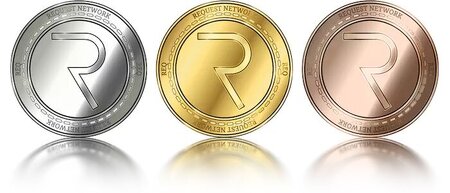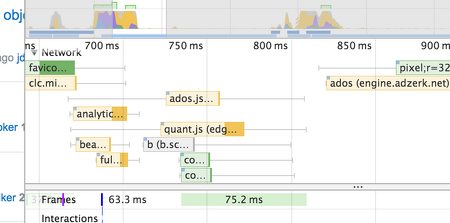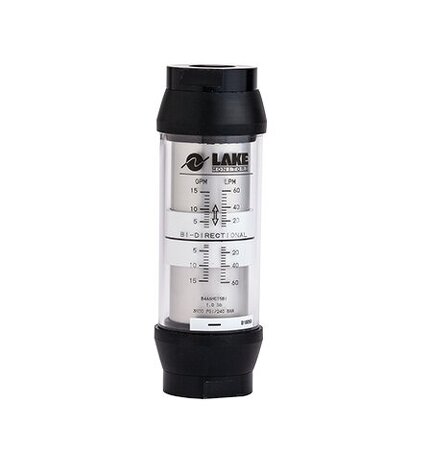
Additional Request Network Resources
Combining the best of cryptocurrency, blockchain, and commerce has not been done on a large scale so far. Request Network is one of the projects designed to do so, although building a decentralized network for payment requests will not be easy. whitepaper, “a marketplace usually pays between 1.5% (Stripe) and 7% (PayPal with inter-currency) of the transaction amount to accept a payment”. Now compare that to the cost of creating a request – between $0.001 and $0.20, depending on the invoiced amount and the selected features.
The Request Network offers some significant advantages over the current systems. Because payments are push generated (instead of pull), there’s no need to share your bank account information. Also important, the use of blockchain technology means there’s no need for third-party processors which greatly reduce transaction costs.
On the Request network, absolutely anyone can generate an invoice that the recipient can then pay securely. Because of the blockchain, all transactions are stored in a decentralized ledger, which is how global payments can be made instantaneously with little to no transaction fees. Also, since the blockchain is decentralized, the ledger cannot be tampered with by hackers or other ill-meaning persons. Typically touted as PayPal 2.0, Request Network is a decentralized payment system that allows anyone to request payments from an individual or organisation. A recipient of a request can then approve payment in a cheap and secure way.

Hence, a decentralised ledger stores all the information and thus, resulting in more affordable, easier and more secure payments. As a result, it allows for a vast range of automated financial possibilities. While this is true and REQ is indeed the new PayPal on the blockchain, the ‘Pay with REQ’ button is just the icing on the cake. Request Network is a decentralized platform that enables anyone to request P2P payments, and makes business to business or business to client invoicing easier and cheaper as well. Request Network will definitely impact existing online payment systems such as PayPal, Stripe and powerhouse credit cards institutions (like Visa, MasterCard, etc.) by providing a cheaper and faster alternative.
network that allows anyone to request a payment for which the recipient can pay in a secure way. It is a layer built upon Ethereum which disintermediates payment requests.
Request Network is an ERC20 Token that uses the Ethereum blockchain as a decentralized and immutable ledger to store all payment information. Based on blockchain technology and built on the Ethereum platform, the Request Network is a decentralized payment solution.
It is an entirely decentralized platform for making secure global payments on the blockchain. Essentially, Request is meant to replace platforms like PayPal, removing the need to share banking information or intermediaries taking commission fees.
The Extensions layer
The blockchain based project focuses on providing multiple services through its eclectic set of functionalities. Every blockchain-based project has its own native currency these days, and Request Network is no exception. This ecosystem works very differently from similar products, as users receiving payments will pay network fees, which require the native token. With a rather low supply of tokens to go around right now, it is evident that the demand for this token will push its price up as well. However, there doesn’t appear to be a need to hold REQ in order to use the network features, although that may need to be clarified by the team moving forward.
- It is an entirely decentralized platform for making secure global payments on the blockchain.
- Essentially, Request is meant to replace platforms like PayPal, removing the need to share banking information or intermediaries taking commission fees.
Request Network is a decentralized network built on top of Ethereum which focuses on letting anyone request payments. There are no third parties involved, the project uses an immutable ledger, and it can support virtually any global currency in the world today. Moreover, the solution is built to be compatible with the Internet of Things, which is something to keep an eye on as well.
With these functionalities, the users of the Request Network can accept peer-to-peer as well as online payments while being able to create and pay invoices in any currency. The Request Network platform also allows the users to have the ability to receive their payments directly in their related account with more privacy.
Payments
In its current state, Request Network is competing to offer some of the same products and functionalities as PayPal, Visa, Venmo, etc. Traditionally, audits require the auditor to inspect a purchase order, invoice, terms of sale, evidence of cash receipt/payment, and a journal entry, which can sum up to hundreds of transactions for bigger companies. By compiling all of this information in one place, while adding extra assurance and further automation services available in the future, both the time and financial cost can be reduced drastically in this area.
In the traditional model, your financial information is stored by both the marketplace and the banks, meaning that we are releasing an identifier that allows banks to pull money from your account without authorization. However, with Request Network, we are ensured consumer protection in a transparent and decentralized way – by giving users direct and full control over their currencies, wealth, and transactions. Request won’t force you to reveal your identity and data with every transaction, nor ask you to sacrifice control to centralized bodies in order to transact.
Both Ripple’s xRapid and IBM Blockchain World Wire utilize cryptocurrencies for cross-border transactions. And yes, both of them also promise ‘automatic’ conversion to fiat currencies at the end of the ‘process’. Considering IBM, Stellar, and Ripple are much larger than Request Network, actually, the success of these projects would mean a harder time for Request Network.
The Request Network is attempting to bring blockchain solutions to every aspect of payments. More than just a product, Request is a platform that developers can build upon to create their own apps and services. The roadmap is audacious, to say the least, and it may be tough for the team to accomplish everything without a simple, singular focus.
Request has also partnered with the Kyber Network to help with cross-currency payments. Additionally, the platform’s smart contracts have been audited by Quantstampand it’s using iExec to accommodate smart auditing services. Most notable, however, is the project’s partnership with accounting firm PwC France to provide blockchain solutions for their business clients. Other than payments, the Request Network is also tackling auditing and budget transparency. Businesses have the ability to track invoices to audit payments as well as record transactions for accounting purposes.
Because Request runs on the Ethereum network, it also gains access to decentralized applications (DAPPS.) A decentralized application is an app developed with the Request network in mind. When developers choose to run their app on Request, half of the work is already done. The framework is already provided for them, and developers can incorporate the Request cryptocurrency right into their applications. For a small fee to stay on the network, developers are saving a bunch of time and money, and users on the front-end won’t even know the difference between a DAPP and a traditionally designed application. If we want to look at the top altcoins list, maybe XRP and XLM are the most relevant competitors.

The Only Guide You’ll Need
Request Network (REQ) is a decentralized platform that wants to make it possible, with the help of blockchain technology, that peer-to-peer payment transactions can take place. In the view of Request Network, centralized parties, such as PayPal, charge way too much for processing transactions. In addition, users of centralized payment systems are often obliged to provide their identity data in order to be able to use the services. However, it is not always clear how this personal data is processed.


